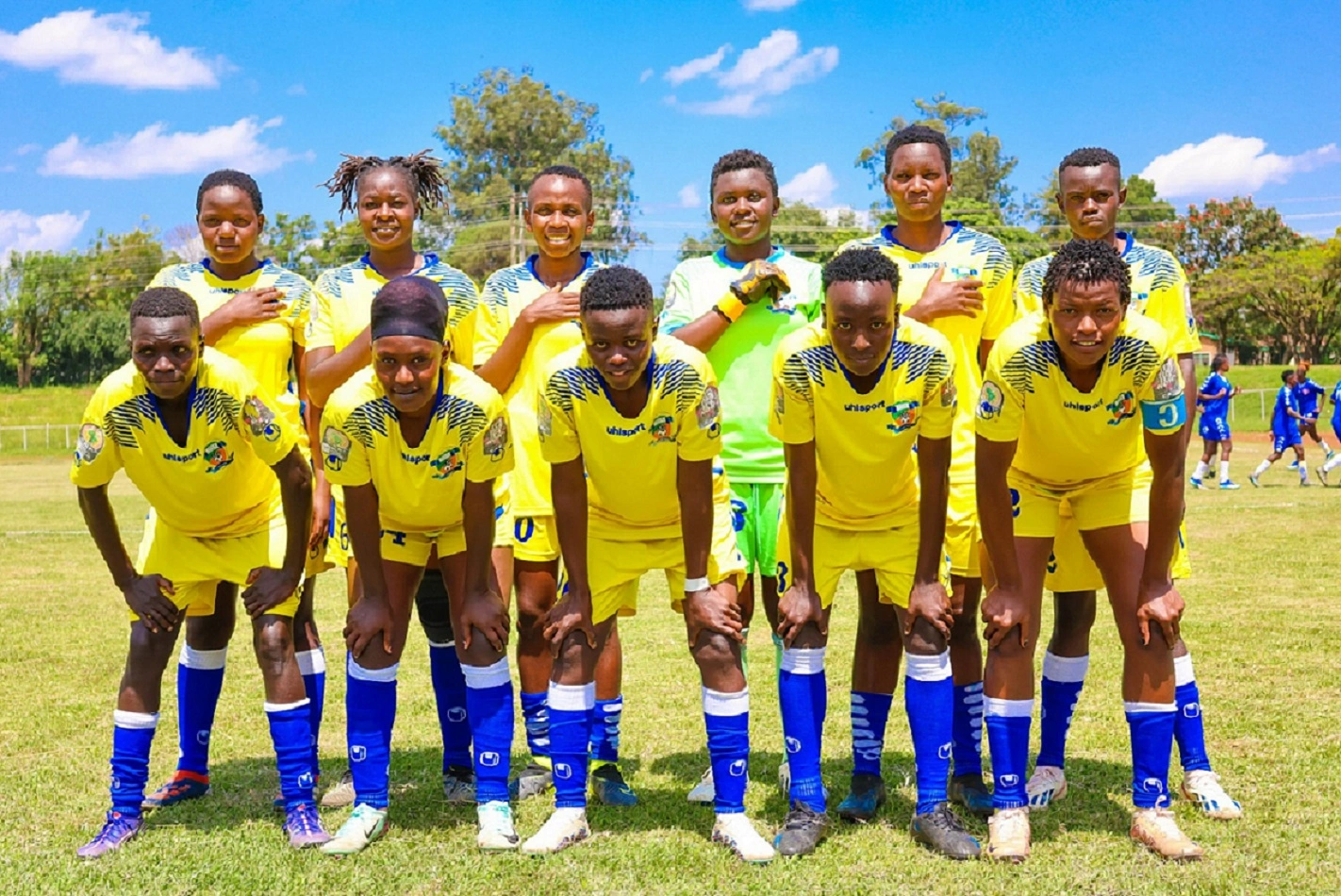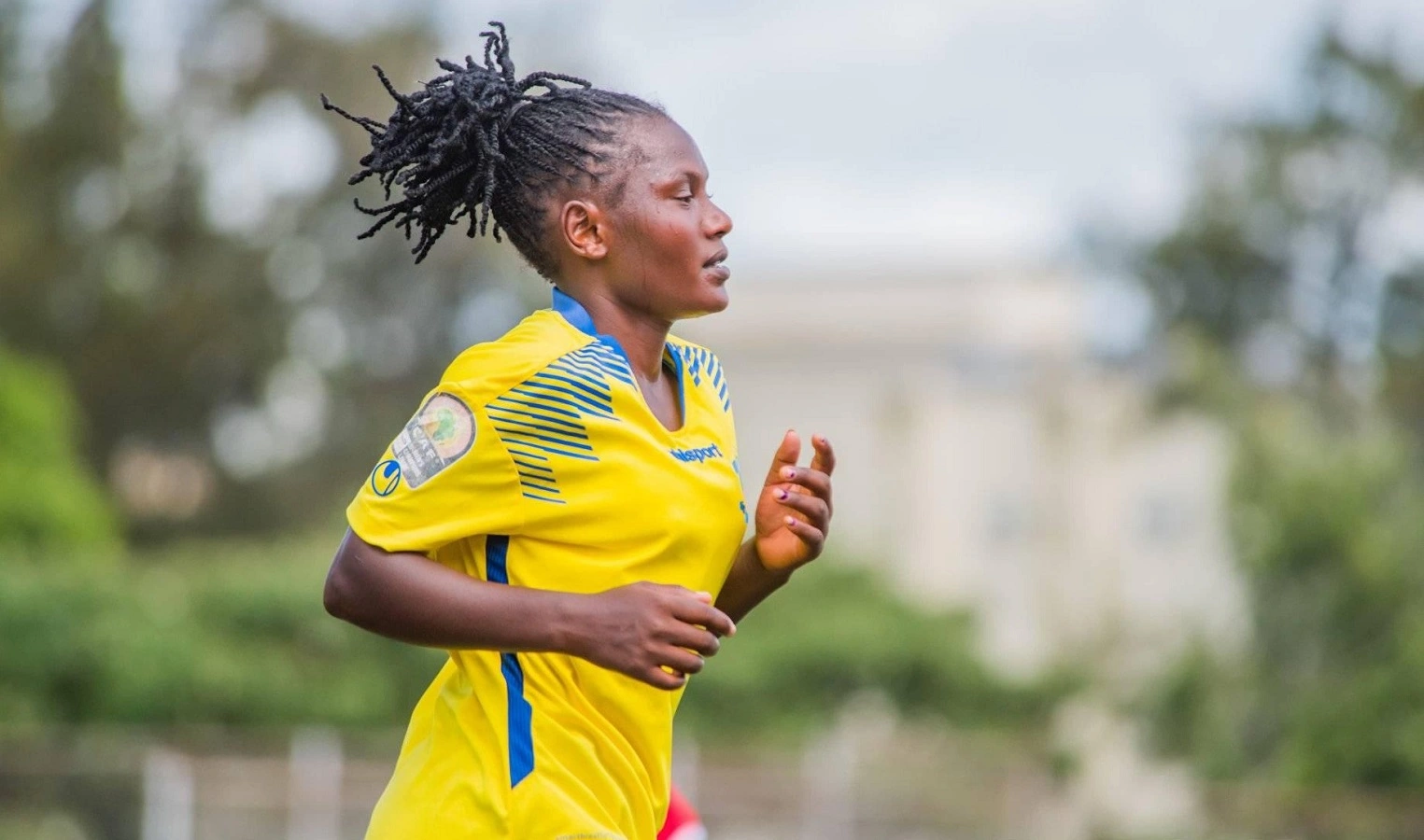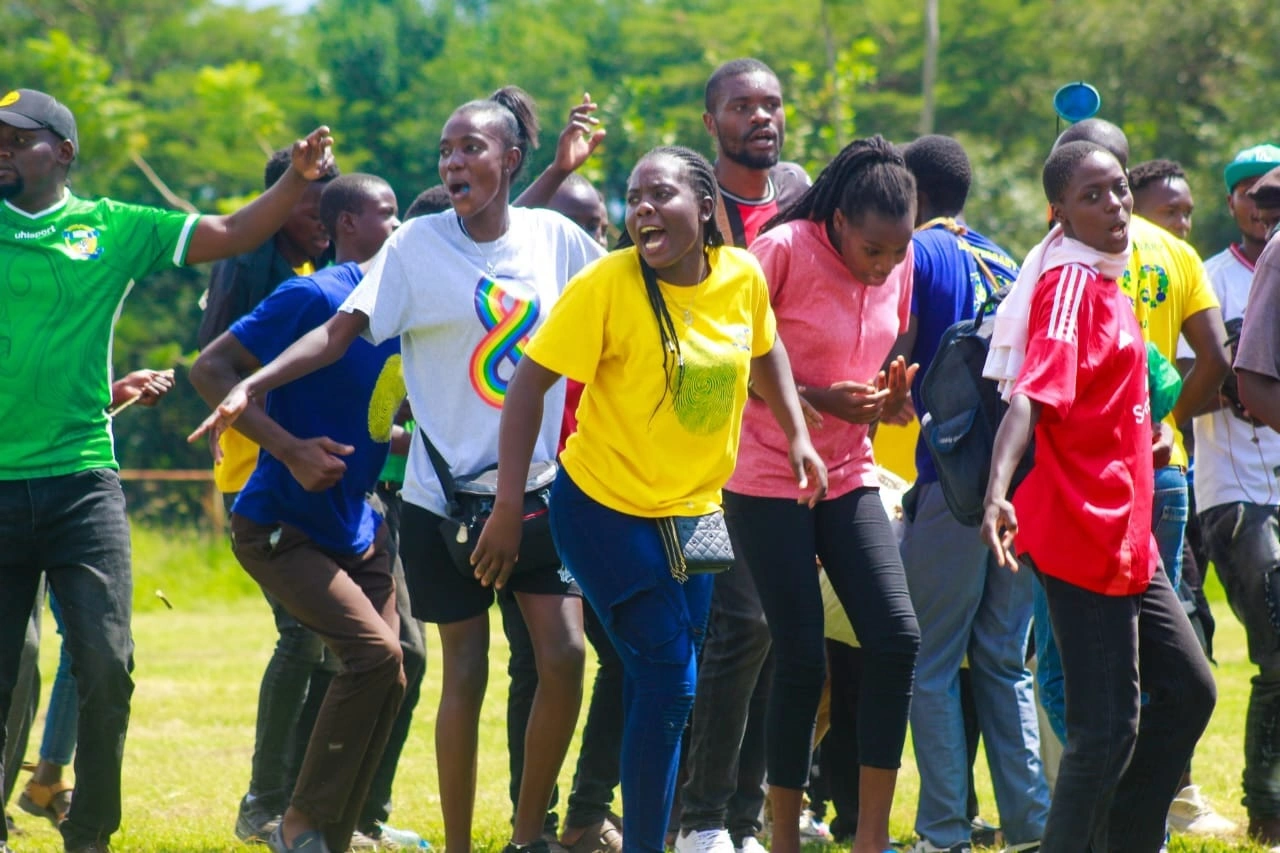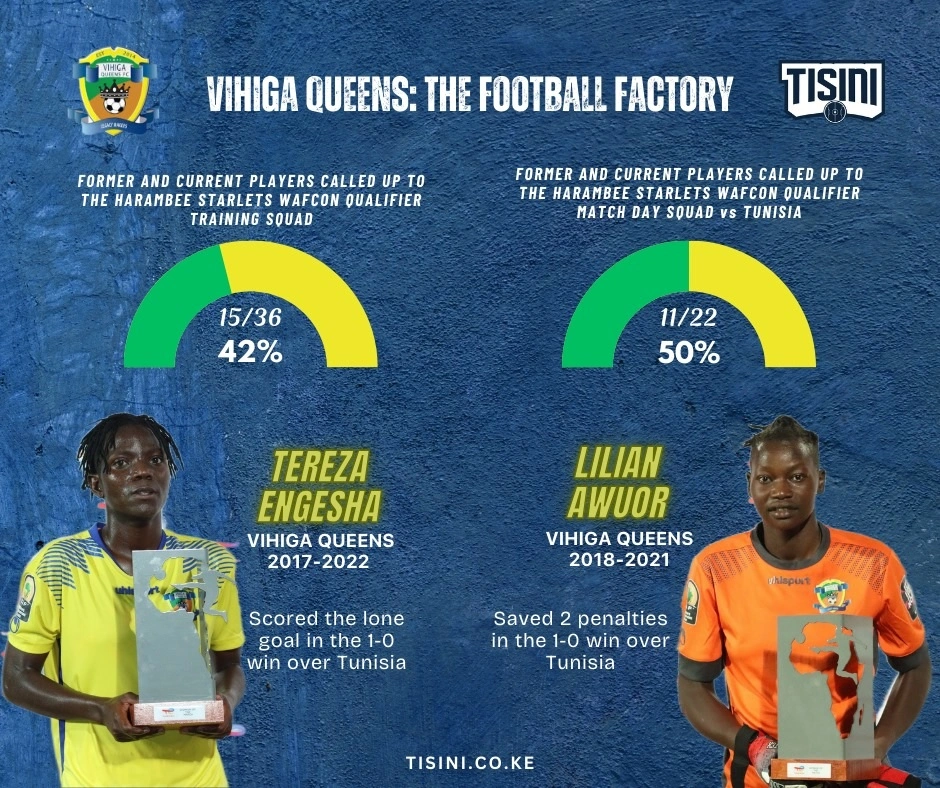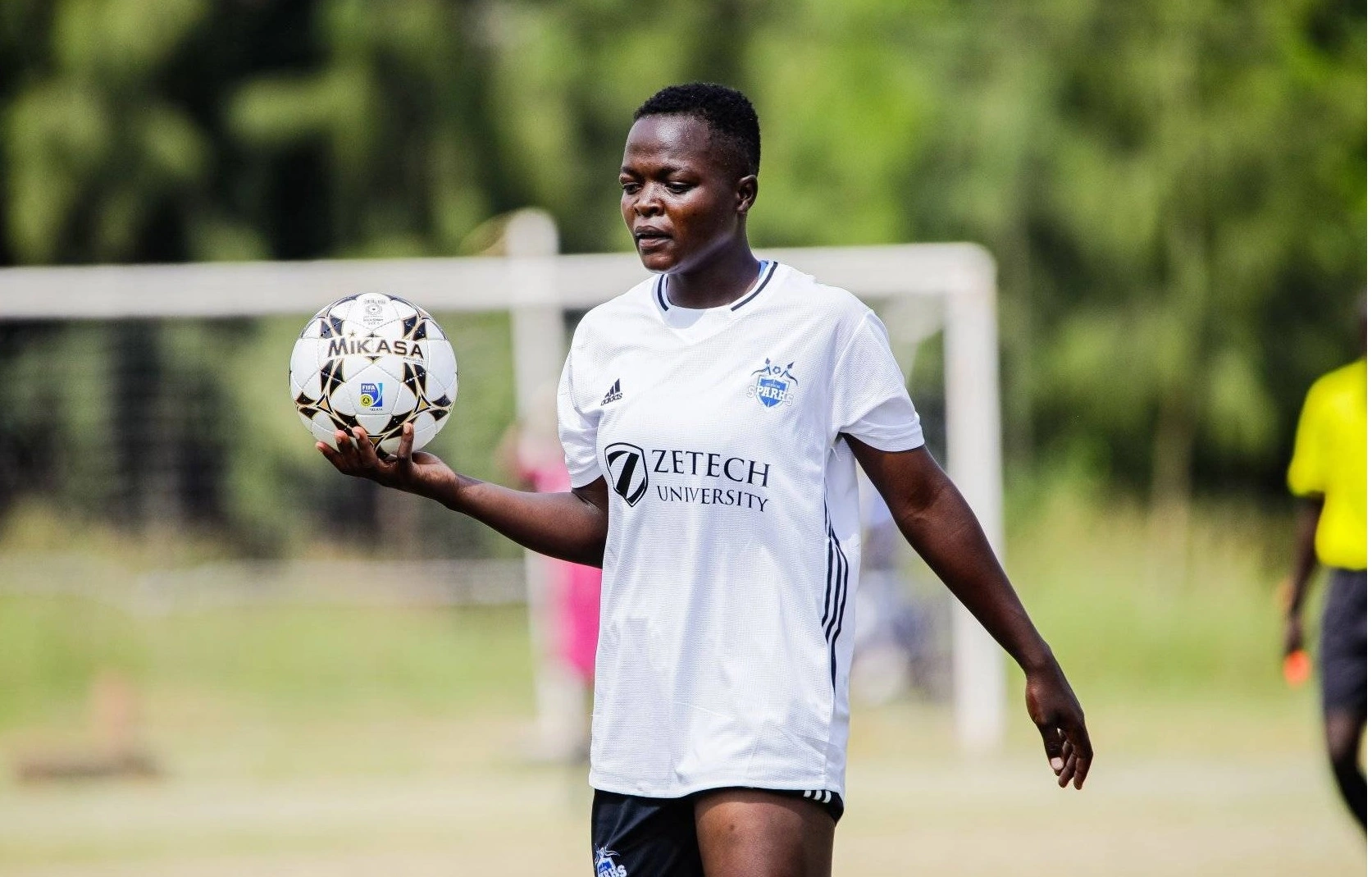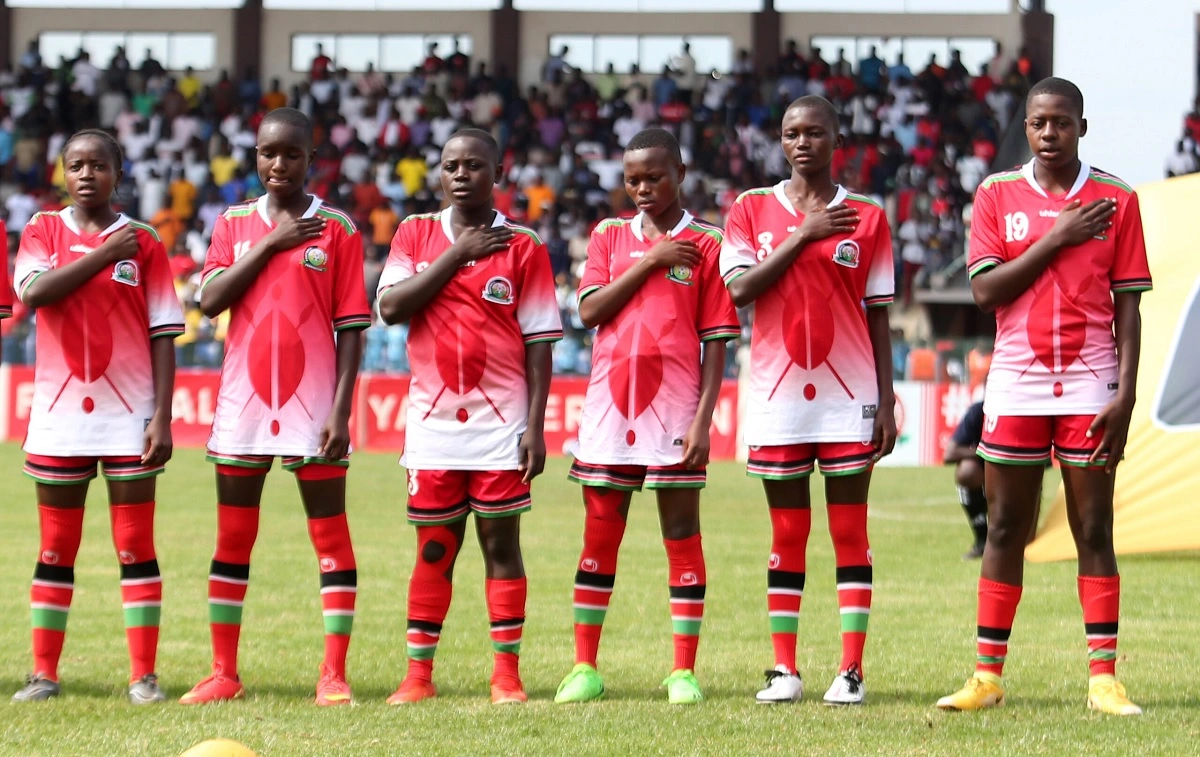
A History of Kenya’s Women’s Football: Celebrating Trailblazers and Achievements
Recently, Kenya Harambee Junior Starlets became the first football side from the country, to reach a FIFA World Cup tournament. This was the cumulation of Kenya’s women’s football journey that has been one of resilience, passion, and trailblazing spirit. Reflecting on the milestones and triumphs of women in football in Kenya, it is a testament to the power of persistence in the face of challenges, and the desire to inspire future generations
Kenya's women's football story is one of determination, enthusiasm, and a pioneering mindset. We look back at the achievements and progress of women in Kenyan football that led to this historical moment.
Early Beginnings
Football in Kenya for many years was viewed as a male-dominated sport, with little to no support for aspiring female athletes. The first women's league in Kenya and national team were created in 1985. At the time, it was a huge achievement globally as very few nations had a women's national football team. The national team was nicknamed the Harambee Starlets.
Locally, a lot of initial steps in women’s football is accredited to the National Youth Service. In 1986, Habil Nanjero and Gilbert Selebwa promoted women’s soccer at the National Youth Service (NYS), where Selebwa was a trainee at the time.
After completing his NYS training, the committed Habil Nanjero went on to establish Eastlanders, one of the first five women's football teams formed in Kenya during the mid-1980s. Joining the football scene were Nairobi City Council, Standard Chartered Bank, Utalii College, NYS, Nyayo Stars from Kakamega, and Eregi Teachers College.
Soon after, the Kenya Women’s Football Federation (KWFF) was formed. KWFF came to replace a football committee that organized women’s football that was led by Albert Arum. It was founded shortly after the 1991 women’s world cup in China, the first FIFA world cup for ladies in history.
Established in 1993, KWFF was headed by Fridah Shiroya (Chairperson) and Rebecca Olela (Secretary General). Arum and Nanjero were also part of this federation with the rest being Solomon Kilasi, Salamba Amienda, and James Sianga.
However, KWFF's tenure was cut short. In 1996, FIFA mandated that women's football be integrated into national football associations. Consequently, a woman was elected Vice Chair to oversee women's football, via a sub committee, in the 1996/97 election, rendering KWFF obsolete.
Women's Football Milestone Achievements
During the 1993/1994 season, Kenya achieved victories in both home and away friendly matches against Uganda. Furthermore, a Kenyan youth team participated in a tournament in Aberdeen, Scotland. A significant accomplishment by KWFA was securing a team's entry into an international tournament in the United States.
Rose Wandera broke barriers as Kenya’s first female referee, officiating high-profile matches and inspiring the development of women's football. She had been a player herself but in 1974, she stepped into officiating. Wandera had organized the formation of Eldoret Municipal and East African Tanning Extract Company women’s teams. The two would play friendlies against each other.
The 1998 KFF National Women’s Tournament was won by the Mathare Youth Sports Association (MYSA). Thereafter, Kenya participated in qualifying matches for the 2003 Olympics and the 2006 African Cup of Nations, marking significant milestones in the development of women’s football in the country.
For the annals of history, Doreen Nabwire emerged as the first Kenyan woman to play professionally in Europe, signing for Werder Bremen in 2009.
"Football opened doors I never imagined. From playing on the streets of Nairobi to stepping onto European fields, it was more than a dream come true it was proof that passion and perseverance can break any boundary." Doreen Nabwire stated.
The inaugural FKF Women's League was held in 2010, with MYSA Ladies emerging victorious. The subsequent champions were Matuu (2012), Oserian (2014), Thika Queens (2015, 2017, 2021), and Vihiga Queens (2018, 2019).
The current version of FKF Women’s Premier League was launched in February 2018, expanding to include the Women’s Division 1 League with support from FIFA Forward.
Vihiga Queens became the inaugural champions, representing Kenya in regional and continental tournaments, including the CAF Women’s Champions League. The western Kenya side has been the regional trailblazers, with 4 Women Premier League Titles and became CAF WCL-CECAFA Region Champions in 2021.
Two significant milestones were reaching the 2016 CECAFA Women's Tournament final and participating in the Women's Africa Cup of Nations, despite three losses. Additionally, Kenya won the 2019 CECAFA Women's Tournament.
Further, the special Olympics Kenya Women’s Football Team won gold at the Special Olympics World Games Berlin in 2023.
Talanta FC's Jackline Juma made history as the first woman to coach a men's team in Kenya's top flight in the 2024/2025 Kenya premier league season.
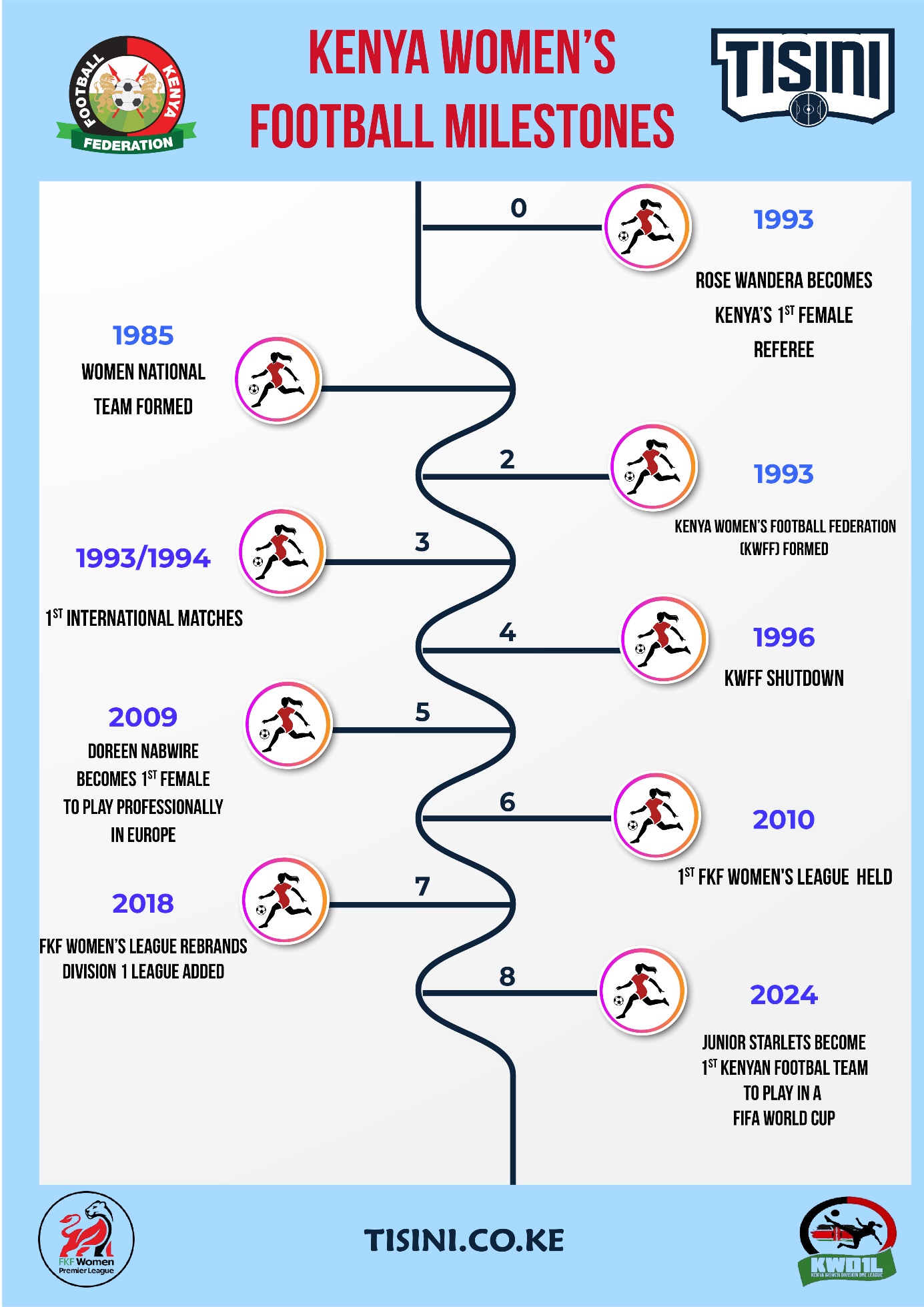
These milestones reflect Kenya’s growing investment in women’s football.
The International Stage: Kenya's Women's Football Team Shines
In recent years, Kenya's national women's football team, the Harambee Starlets, has taken the spotlight. Under the guidance of passionate coaches and through the efforts of talented players, the Starlets have made significant strides on the African continent.
The Starlets have also inspired a whole new generation of young girls to take up football, defying cultural expectations and setting new standards for success. This was a history made after junior starlets represented the Country in the Dominican Republic, for a global football showpiece, as they participated in the 2024 FIFA U-17 Women’s World Cup after a strong round of qualifiers.
"This is a huge accomplishment for the girls to be the first team in the country to qualify for the World Cup. It’s a historic moment for the players, the technical bench, and the country” said Mildred Cheche –head coach Junior Starlets after qualification was sealed.
Kenya Women Football Club Successes
Kenya’s female clubs have also been making strides Thika Queens, Vihiga Queens, and Zetech Sparks have been dominating the Kenya Women's Premier League, showcasing immense talent and fierce competition.
These clubs have earned recognition both locally and internationally, competing in regional championships such as the CECAFA Women's Club Championship and in the CAF Women’s Champions League qualifiers.
“Our sights are firmly set on CECAFA. We are determined to strengthen our squad with top-quality players to enhance our competitiveness on both the international stage and in the league next season,” stated Vihiga queens Coach Boniface Nyamu.
Challenges Faced
Despite the growing success, female footballers in Kenya continue to face numerous challenges. From limited funding and poor infrastructure to inadequate training facilities, the road to equality in football remains long.
Yet, the unwavering spirit of Kenya’s female footballers continues to break through these barriers, leading by example and pushing for better opportunities for future players.
“It’s especially emotional for someone like me who has been involved in football for quite a long time. It was one of my dreams and since I couldn’t do it when I was a player, I promised myself that I would contribute to the growth and development of women’s football in Kenya in any way possible. Today, I’m living the dream.” stated Doreen Nabwire .
The Future of Women's Football in Kenya
Today, the landscape of women’s football in Kenya is brighter than ever. With increasing media coverage, and more sponsorships, the future looks promising. Local leagues are more competitive, and the national team continues to inspire with every game they play.
Women's Division 1 League, played nationwide, is predicted to evolve into a national league, and Kenya has been selected for a FIFA pilot program to establish U-13 and U-15 girls' leagues in primary schools.
The young girls playing football in Nairobi, Kisumu, or Mombasa today are the future stars of tomorrow. From humble beginnings to international acclaim, the journey of women’s football in Kenya is far from over.
The fight for equality, better recognition, and opportunities for women in sports continues, but each year brings more hope, talent, and inspiration. As the women’s game in Kenya continues to evolve, one thing is clear the world is watching, and the best is yet to come.

